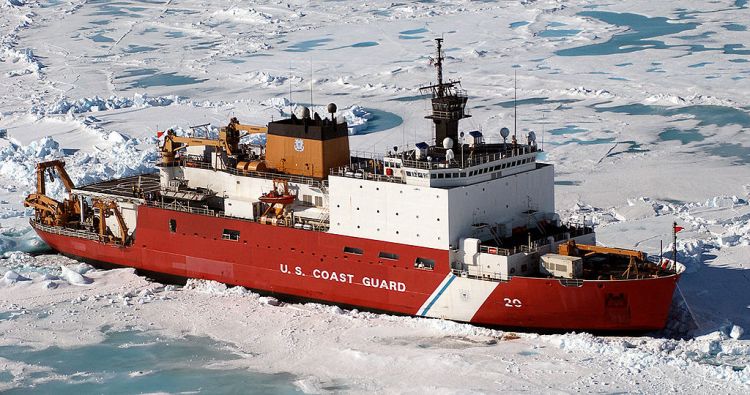NEW LONDON, Conn. – Coast guard leaders from the U.S., Russia and other Arctic nations pledged Friday to strengthen cooperation in response to safety and environmental concerns as warming temperatures open new waterways in northern seas.
With human activity increasing dramatically in the Arctic, the leaders of eight nations’ maritime agencies gathered over three days at the U.S. Coast Guard Academy in New London before formally establishing the Arctic Coast Guard Forum.
The U.S. Coast Guard commandant, Adm. Paul Zukunft, noted the presence of his Russian counterpart, Adm. Yuri Alekseyev, despite tensions between the two countries. He said the agreement represents how seriously member nations view safety of life at sea and protecting against dangers such as oil spills.
“We have an opportunity to lay out a strategic framework for the Arctic, to make it a region that focuses on humanitarian concerns, on environmental concerns, on the way of life of indigenous tribes, and not as a war-fighting domain,” he said in a news briefing. “An area that we can work with collegially and not as adversaries.”
As the planet warms, waterways through the Northwest Passage above Canada and Russia have opened during summer months, funneling more ship traffic through the Bering Strait. The region also holds trillions of dollars’ worth of oil and gas reserves, and many have warned of a new battleground for resources emerging in the 21st century.
Cadets in dress blue uniforms later held a drill on the academy grounds in honor of the forum’s members. The regimental review was attended by delegations except for Russia’s, which departed immediately after the signing ceremony.
A total of eight countries – Canada, Denmark, Finland, Iceland, Norway, Sweden, Russia and the U.S. – set up the forum. The new organization will help implement agreements of the Arctic Council, which is comprised of the same member countries, but also make its own decisions and plans concerning Arctic operations.
The chairmanship will align with the Arctic Council, currently led by the U.S., and will rotate every two years.
The forum’s agreement calls for stronger information-sharing, and the group is expected to work out how the coast guards will support priorities already established by the Arctic Council. Member nations have signed binding agreements for search and rescue and environmental protection, but Zukunft said until now there has not been a way to implement operations.
Zukunft said in the near term the forum is not likely to take up more contentious issues, such as freedom of navigation and issues of sovereignty.
“This is really for navigational safety,” he said. “As you all realize, freedom of navigation through these areas is a critical area as well. That is in the distant future.”
The summit took place at the academy’s Center for Arctic Study and Policy. Officials say the Arctic has been emerging as a popular topic of study at the academy, where cadets train and study for careers as Coast Guard officers.
Send questions/comments to the editors.



Success. Please wait for the page to reload. If the page does not reload within 5 seconds, please refresh the page.
Enter your email and password to access comments.
Hi, to comment on stories you must . This profile is in addition to your subscription and website login.
Already have a commenting profile? .
Invalid username/password.
Please check your email to confirm and complete your registration.
Only subscribers are eligible to post comments. Please subscribe or login first for digital access. Here’s why.
Use the form below to reset your password. When you've submitted your account email, we will send an email with a reset code.